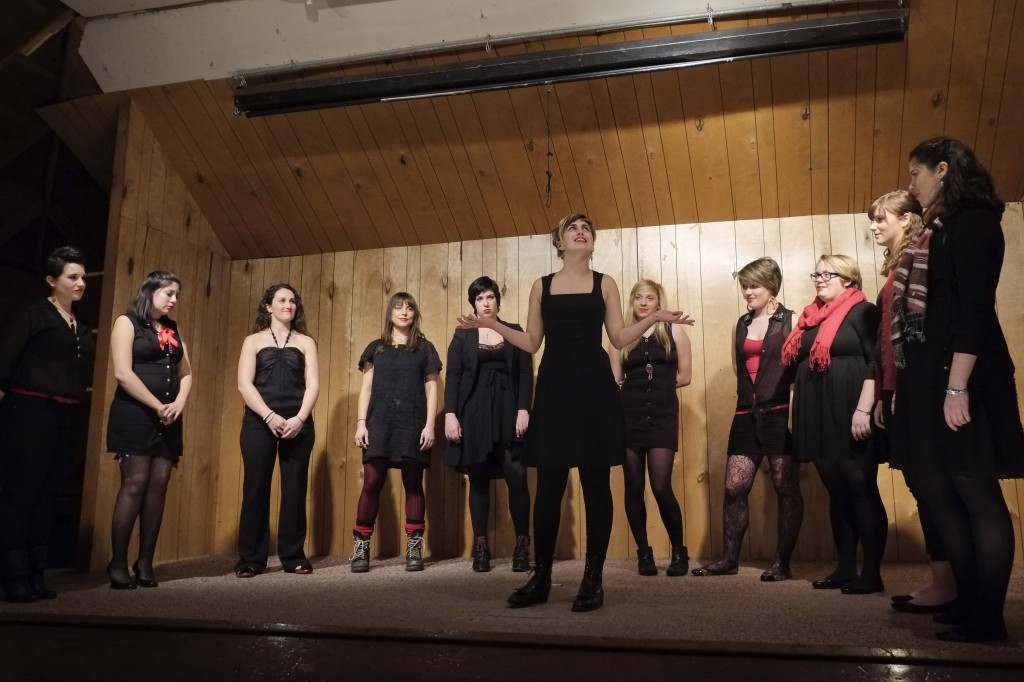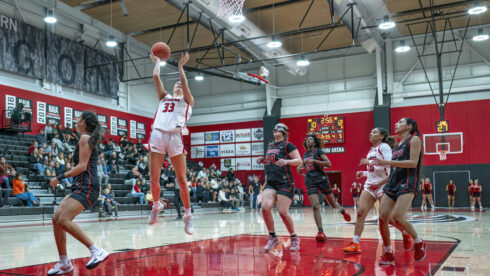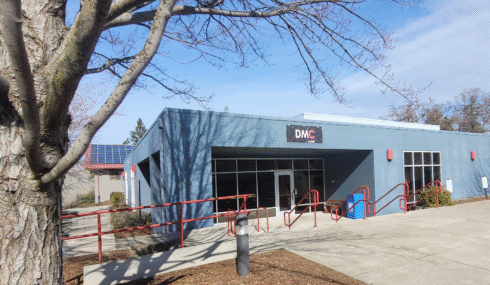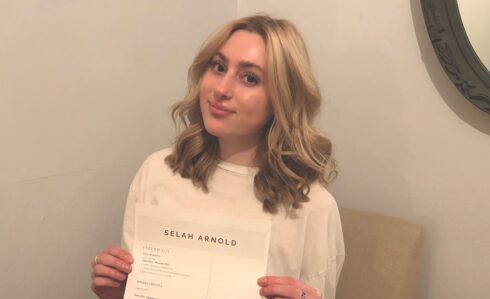
About 150 men, women and children crowded into Ashland’s Bellview Grange last weekend for Southern Oregon University’s Women’s Resource Center’s annual production of the Vagina Monologues, a global performance movement that seeks to address and abolish violence against women and girls through artistic means.
Directed by Corrin Baker and Mary Vest, this year’s cast consisted of 15 women, all whom dedicated many hours and much emotion to the cause.
The Vagina Monologues feature performances representing women and girls who have been interviewed about a common theme: their vaginas. They address a variety of issues relating to what women and their genitalia experience, such as sexual assault, menstruation, the pubic hair question, and giving birth. More lighthearted skits presented the questions “what would your vagina wear,” and “if it could talk, what would it say?”
Hannah Swenson, WRC staff member and graduating senior, performed in this year’s Vagina Monologues and feels that events such as these are unbelievably important.

“There is so much pain and violence,” Swenson said. “If we ignore it, it will just keep going.”
“I finally get to be a part of something in the community and around the world,” Swenson said. “It is liberating and powerful.”
According to statistics expressed through the movement, one in three women on the planet will be raped or beaten in her lifetime, which amounts to a staggering one billion women.
Many organizations and other resources were present at the event, lending their support to the cause. Planned Parenthood held a booth with condoms, candy, and pamphlets educating on the importance of safe sex, while a domestic violence prevention cause tabled with “strength” wristbands and sexual assault survivor support.
The WRC’s booth featured a variety of goodies, including custom made pins, shirts, cupcakes and chocolate suckers, decorated with female genitalia. A silent auction offered massages, private yoga classes, and gift certificates to local restaurants. Ninety percent of proceeds are donated to local non-profit organizations dedicated to helping women and children who are victims of sexual assault, such as the WRC S.A.F.E Foundation and Sexual Assault Victims Services.
Mary Vest, stage manager and co-director of the Vagina Monologues this year, personally identifies with this cause. When she was 12 years old she was sexually assaulted by a stranger. She had virtually no support after the event, Vest said, which motivated her to help others.
“I didn’t have a voice,” she said. “I want to make people realize that they’re not alone … The mindset of ‘what can one person do?’ is not an option for me.”

Vest realized that one person really does make a difference. The Vagina Monologues is proof of this, the worldwide movement originally began as a one-woman show.
“Huge things can happen if everybody thinks that way,” she said.
Corrin Baker, co-director of the Vagina Monologues, believes that the college years are a very important time to be exposed to these issues.
“There are domestic problems in the valley every year,” she said. “I want to be an example to future generations and make a difference.”
Baker, a participant in the Vagina Monologues last year, says that it is common sense that made her want to continue spreading awareness for the cause.
Given all of the controversy surrounding women’s rights during the recent election, Swenson, Vest, and Baker all agree that women’s rights have a long way to go on the national level.
“On a national level, we can always go further,” says Swenson. “But there would be no progress without these events.”
The program ended with the spotlight on the One Billion Rising movement, part of what has become known as the V-Day Campaign.
V-Day encourages women and girls to take a stand against violence through anti-violence awareness events and fundraisers such as the Vagina Monologues. One Billion Rising encourages women to rise, dance and lend support to each other until global awareness of the issue leads to significant change.



